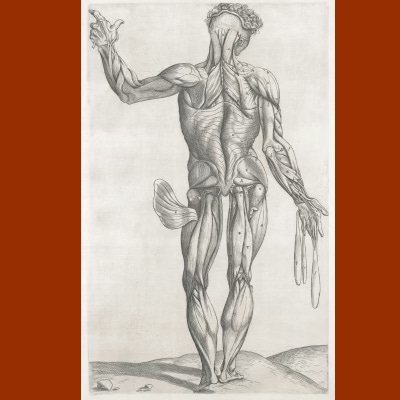This week, let’s pull back the curtain on the link between hormones, muscle, and metabolism. Because what may be happening inside your body isn’t about willpower — it’s about biology. And once you understand the science, you can work with your hormones instead of feeling like you’re fighting them.
Whether you’re experiencing perimenopause, menopause, or andropause — or just hitting your 40s and beyond — your hormonal landscape is shifting.
The hormones that are key players when it comes to muscle are:
💪🏽 Estrogen
→Supports muscle repair, strength, and glucose uptake
→Loss contributes to increased fat storage, especially around the abdomen (which is a marker of metabolic syndrome), and reduced insulin sensitivity
↓ Declines sharply during perimenopause and menopause
💪🏽 Testosterone
→ Helps build and maintain lean muscle mass
→ Supports libido, energy, and mood
↓ Naturally declines with age in both sexes
💪🏽 Growth hormone & DHEA
→ Involved in tissue repair and recovery
↓ Decline gradually with age, reducing your ability to rebuild
Together, these hormonal changes can accelerate sarcopenia — the age-related loss of muscle mass and function — and impact your strength, metabolism, and resilience.
But here’s the thing no one’s saying loudly enough:
Midlife isn’t a decline. It could be a window of opportunity.
In a way, muscle could be a form of hormonal therapy.
You can’t stop hormones from shifting. But you can change how your body responds to those shifts — and muscle could be your best tool.
Resistance training has been shown to:
✅ Improve insulin sensitivity (which drops as estrogen declines)
✅ Support better blood sugar and lipid profiles
✅ Reduce hot flashes and brain fog
✅ Improve mood and sleep via endorphin and serotonin support
✅ Enhance cognitive function and reduce dementia risk
When you lift, squat, push, or pull, you’re not just building muscle — you’re sending hormonal signals that say:
“I need this tissue. Keep it. Fuel it. Protect it.”
Remember in the first week of this series, I talked about how muscle is your metabolic powerhouse.
Muscle: Your Metabolic Powerhouse
When we think about metabolism, muscle isn’t usually the first organ that comes to mind. We’re more likely to think of the thyroid, the liver, or blood sugar levels. But what if one of the most powerful regulators of your metabolic health is something you can flex?
The technical term for muscle loss, sarcopenia, starts as early as your 30s and can speed up without intervention. But here’s the empowering truth: It’s never too late to slow this down. Individuals can build muscle as they age. 1
Now Is the Time to Build “protective muscle.” Muscle isn’t just about feeling strong today. It’s about building a reserve that protects you tomorrow.
Think of it like a health savings account? You deposit strength now — through resistance, protein, recovery. And then that “savings” pays off later — with better balance, metabolic stability, cognitive function, and independence.
To review, the research is clear:
Higher muscle mass is associated with lower mortality risk
Strength in midlife predicts longer healthspan and better quality of life
And for women, lower body strength in particular is tied to reduced risk of cognitive decline
“Protective muscle” isn’t a luxury. It’s a necessity if you want to live and age well.
If all this feels overwhelming, let’s just get back to basics.
You’re not behind. You’re right on time.
Your hormones are talking — and muscle is how you answer back.
Start here:
✅ Keep (or begin) lifting — even 2x/week for 20 mins a time matters
✅ Nourish with protein and micronutrients
✅ Rest, sleep, and support recovery (this is where hormones recalibrate!)
✅ Be patient — you’re rebuilding infrastructure
This is what no one told you:
That you would need to fight for your muscle in midlife — and that it might feel worth more than just keeping the muscle you were losing.
In my book, resistance training is hormonal medicine. Eating enough is metabolic self-respect. And aging can be powerful, not passive.
As always, I’d love to hear from you. How have your hormones affected your energy, mood, or muscle? And what’s helped you feel strong through the transition or what’s been a barrier? What can we support you with? Today is about nudging you to see this phase of life as a time for rebuilding and restoring strength and much more.
Mayer et al. The intensity and effects of strength training in the elderly. Dtsch Arztebl Int. 2011 May;108(21):359-64.






This is great! I’m 61, hadn’t touched a gym in my life then learned that my bone density was declining. I started with a 6 week trial at a small gym- thinking I’d hate it- and it’s the best thing I’ve ever done. 7 months in I feel stronger, enjoy the community there and my balance is better. I’ve just started taking collagen too, and eat plenty of protein. It’s so good to read that ‘it’s never too late’, thanks for writing.
This is so interesting - I've never thought of muscle as a form of hormone therapy, but clinically it makes so much sense. Makes you also wonder of the implications of the GLPs when a common side effect is a loss of muscle mass - and what that would mean for long-term hormonal homeostasis. It would be a very interesting research question!